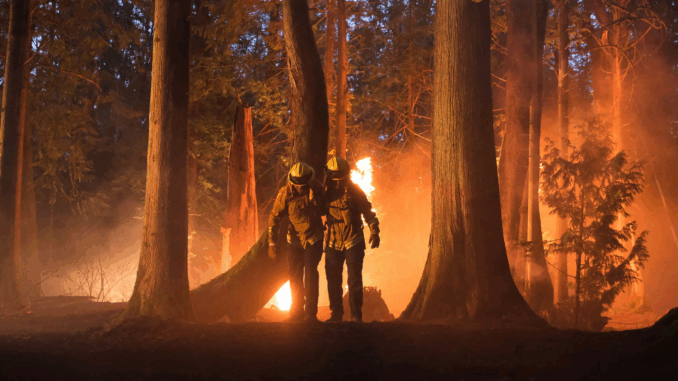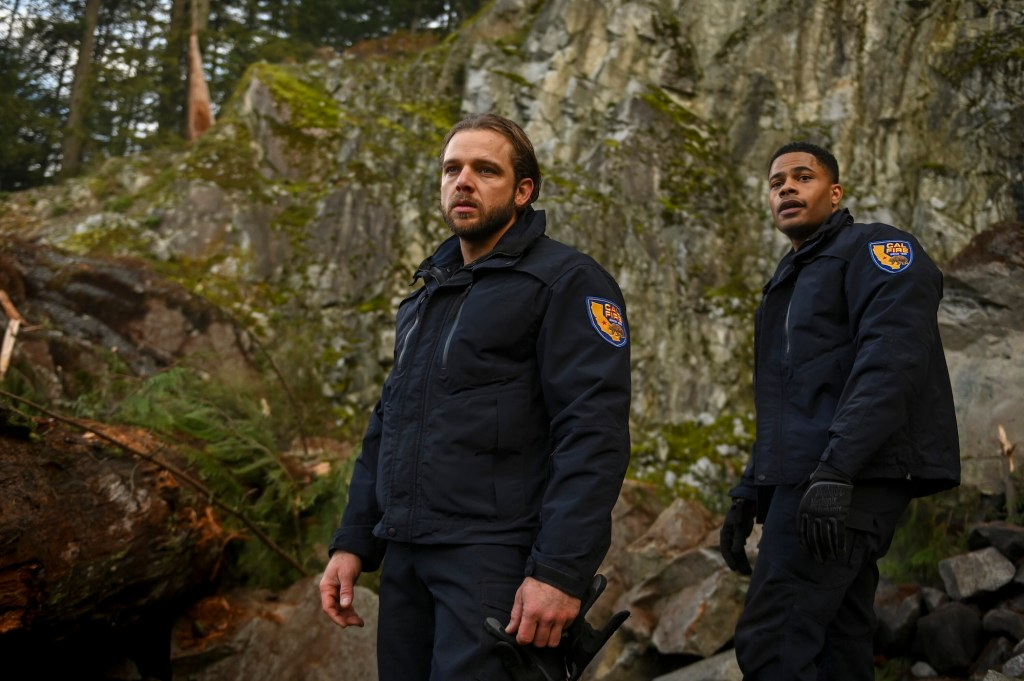
Love under pressure burns the hottest—and in Fire Country, relationships smolder, explode, and sometimes heal in the middle of literal and emotional wildfires. While the CBS drama delivers high-stakes action and moral dilemmas, it also excels at navigating the tender, often tumultuous terrain of human connection. At the heart of this fiery world lies a deep exploration of love, loyalty, and personal growth, where every romance carries the weight of grief, trauma, and the ever-present risk of loss.
This article delves into how Fire Country crafts its love stories—not just as subplots, but as central forces that shape the characters’ identities, test their values, and reflect the harsh realities of a life lived on the edge.
Love in a World That Doesn’t Pause
Firefighting leaves little room for leisure or reflection. Time is a luxury, and emotions are often buried beneath duty and urgency. In this world, love doesn’t develop slowly—it erupts.
Bode and Gabriela’s relationship exemplifies this intensity. Former lovers torn apart by tragedy and time, they reunite under circumstances steeped in pain, regret, and unspoken longing. Their chemistry is undeniable, but so is their trauma. Gabriela is trying to move forward, while Bode is constantly pulled back by guilt and the consequences of his past.
Their moments together are electric yet painful. There’s no safety net between them—only raw emotion, unresolved questions, and a fragile hope that maybe, just maybe, love can bloom in burned soil. This isn’t a fairytale. It’s a love forged in loss and kept alive through forgiveness.
The Triangle: Bode, Gabriela, and Jake
No modern drama is complete without a love triangle, but Fire Country doesn’t reduce this narrative to a shallow rivalry. Instead, the triangle between Bode, Gabriela, and Jake becomes a powerful study in character.
Jake, a respected firefighter and Bode’s former best friend, is now dating Gabriela when Bode reenters the picture. While he initially comes off as the clean-cut foil to Bode’s brooding antihero, Jake’s layers slowly unravel. His jealousy is grounded in real fear—fear of loss, of betrayal, of not being enough. He’s not a villain; he’s a man grappling with vulnerability.
This triangle doesn’t just create tension—it exposes truths. It forces Bode to confront the pain he left behind, Gabriela to reassess what she truly wants, and Jake to question his sense of self-worth. No one is entirely right or wrong. That ambiguity is what makes their emotional entanglement so compelling.
The Firehouse as a Pressure Cooker

Romance within a workplace is complicated. But in a firehouse, where life-and-death decisions are made daily, those complications are magnified. Add to that the confined spaces, shared trauma, and hierarchical dynamics, and you get a perfect storm for emotional volatility.
Fire Country explores how these tensions play out across the team. Sharon and Vince’s marriage, for example, isn’t idyllic—it’s marked by years of sacrifice, unspoken pain, and the shared loss of their daughter. Yet, through it all, they remain a united front. Their relationship is a grounding force, showing what long-term commitment looks like when weathered by fire, both literal and figurative.
In contrast, newer bonds—like Gabriela’s with Bode or Jake—are still forming, still vulnerable to the emotional fallout of the past. These relationships must contend with not only individual baggage but the scrutiny and stress of the firehouse ecosystem.
Emotional Rescue or Real Love?
One of the most fascinating questions Fire Country raises is whether love in such an environment is born from genuine connection—or from the need to be saved.
Bode, for example, is a man constantly trying to atone. His relationships risk becoming entangled in that need for redemption. Does he love Gabriela for who she is, or for what she represents—a better version of himself?
Gabriela, too, must question whether her attraction to Bode stems from unfinished business or a deeper, unshakeable bond. And what of Jake? Is his love steady and supportive, or rooted in a fear of being overshadowed by Bode’s return?
These uncertainties make the show’s romances all the more real. Love here is messy, evolving, and never guaranteed. It is not a narrative convenience—it is a character crucible.
Family, Found and Broken
Romantic relationships aren’t the only emotional bonds under the microscope. Fire Country places strong emphasis on found family—the deep, often brotherly and parental bonds that form between people facing death together.
Bode’s relationship with Sharon and Vince is perhaps the most emotionally loaded. As his biological parents, they represent both pain and possibility. Their reunion is tentative, filled with years of disappointment and fractured trust. Yet, through slow conversations, shared missions, and even arguments, we witness a family slowly trying to mend itself. There is love here, but also an immense amount of work needed to reclaim it.
Then there are friendships that border on sibling-like intimacy. Bode and Freddy’s bond is built on mutual respect and survival. These connections, often deeper than romance, give the show emotional weight. They remind us that love doesn’t always need to be romantic to be transformative.
The Weight of Loss
Every character in Fire Country carries grief like a second skin. Riley’s death is a shadow over every scene. It binds Bode, Sharon, Vince, and Jake in a shared trauma that they rarely speak of—but never escape. Love, therefore, is not just about hope. It’s about navigating grief together, finding new meaning in the aftermath of devastation.
The show wisely doesn’t offer easy answers. Love is not a cure for pain—it’s a companion through it. And that message resonates deeply in a world where emotional scars are as enduring as physical ones.
Conclusion: Romance as Resistance
In Fire Country, love isn’t a subplot—it’s an act of defiance. To fall in love, to remain loyal, to forgive, to build a future amid flames and ashes—these are radical acts. They are declarations that life, however uncertain, is still worth fighting for.
The show treats romance with emotional intelligence, giving space for complicated feelings, moral ambiguity, and deep vulnerability. It reminds us that even in the most dangerous, unforgiving places, the human heart continues to seek connection.
And sometimes, that connection is what keeps us alive—not just in the fire, but long after the smoke clears.
